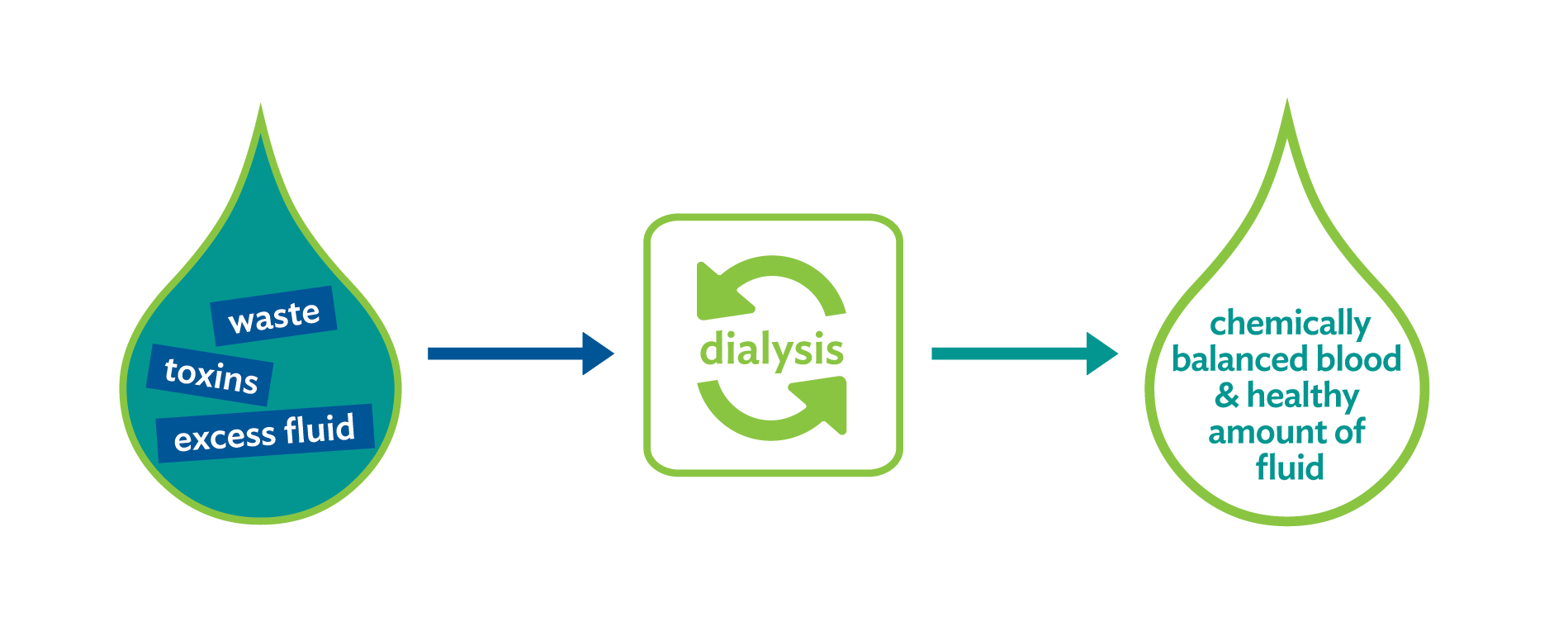Dialysis is a life-saving process that removes toxins, waste products and excess fluid from your blood. Your doctor will prescribe dialysis when your kidneys are not working well enough to keep your body in chemical and fluid balance. Dialysis can take the place of some kidney functions and, along with medication and proper care, help people live longer.
When a person has kidney failure, the kidneys are no longer functioning to filter and clean the blood the way healthy kidneys normally would. Without treatment, life-threatening waste and toxins will build up in the body. At this point, dialysis treatment or a kidney transplant is needed to prolong life.
Doctors use a number of kidney function tests when determining kidney health. Early diagnosis of kidney disease can help you keep kidney function for as long as possible – and allow you and your doctor to plan for kidney replacement therapy when necessary.
Dialysis works by filtering toxins, waste and fluid from your blood through a semipermeable membrane. The 2 types of dialysis, hemodialysis (HD) and peritoneal dialysis (PD), use different methods to filter blood.
With HD, the filtering membrane is called a dialyzer (artificial kidney), which is connected to a dialysis machine. Your blood is circulated through the dialyzer and cleaned before being returned to your body. In-center HD is performed by a trained team of nurses and/or technicians. At-home HD can be performed in the comfort of your own home, on your own, or with the help of a care partner.
With PD, the filtering membrane is the natural lining of your peritoneum or abdomen and blood never leaves your body. Both types of dialysis also use a dialysate solution in the filtering process to remove unwanted substances from your bloodstream. Like Home HD, PD can be performed in the comfort of your own home.
Everybody is different, and the time it takes to feel better on dialysis can vary. The important thing to know is that you will likely feel better.
It’s important to follow every step of your treatment exactly as your doctor prescribes – including your dialysis schedule, medication regimen, nutrition guidelines, and access site maintenance.
Commit to your full dialysis session – every time
Your doctor will prescribe the treatment time that’s right for you. Completing every treatment will help maximize the effectiveness of your dialysis. Reducing your prescribed treatment time by even 5-10 minutes will allow toxins and fluid to build up in your body – which will impact your health and how well you feel.
Take all medications as directed
A person on dialysis needs certain medications to help maintain the body’s healthy balance. It’s critical to take all of your medications as prescribed.
Eat well and manage your fluids
Because dialysis works to achieve chemical balance and remove excess fluids, it’s important to eat well, limit salt and control the amount of fluids you consume.
Ensure you have the best type of access for you
Your dialysis access site is your lifeline to dialysis. Talk to your doctor or nurse to ensure you have the best access site possible. Feeling your best and staying healthy starts with a great access site.


